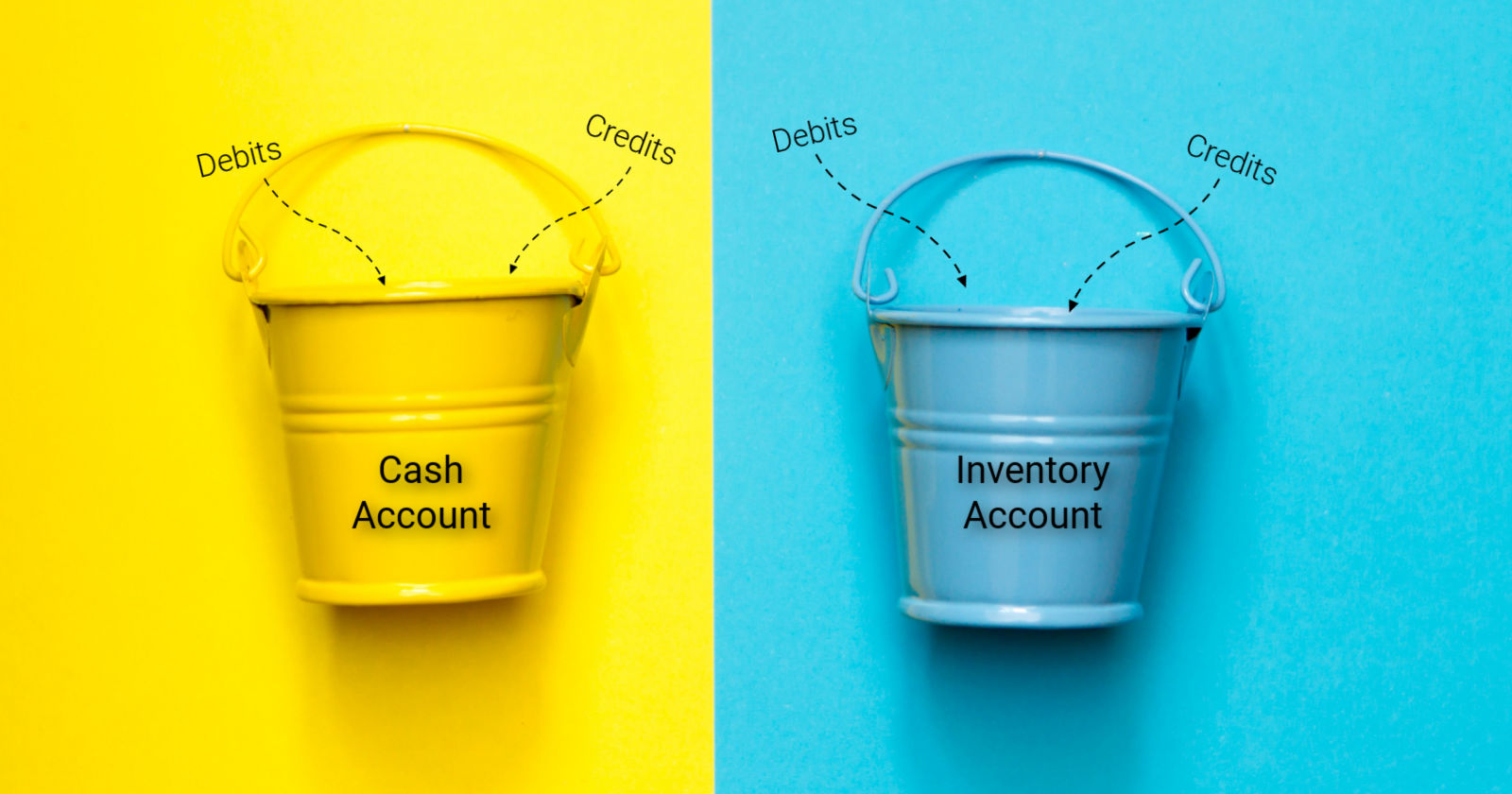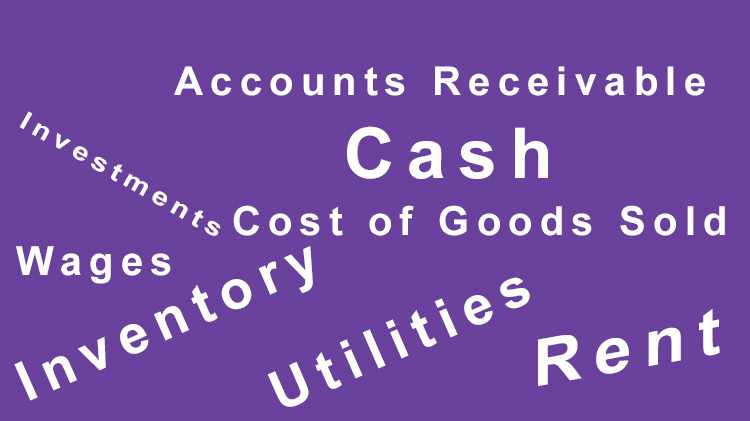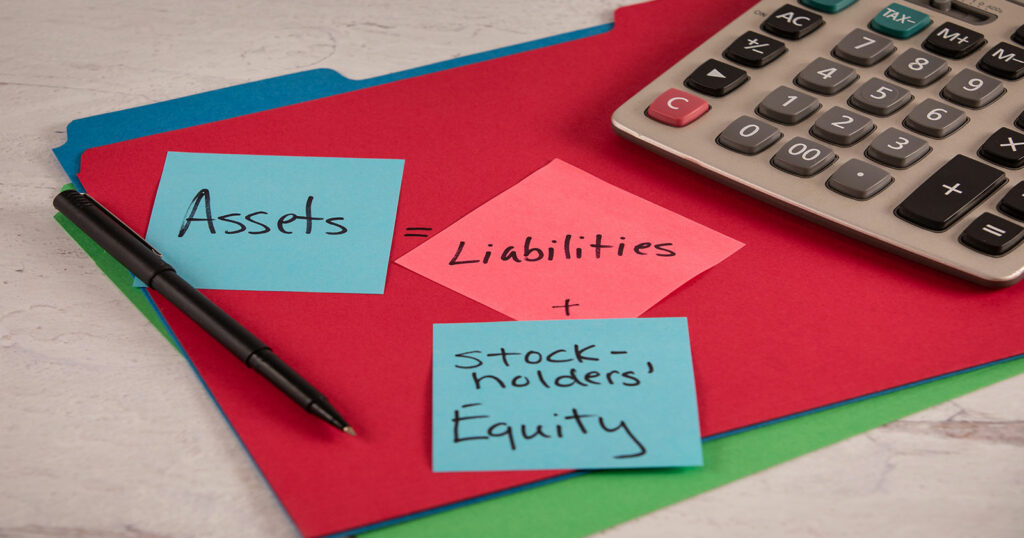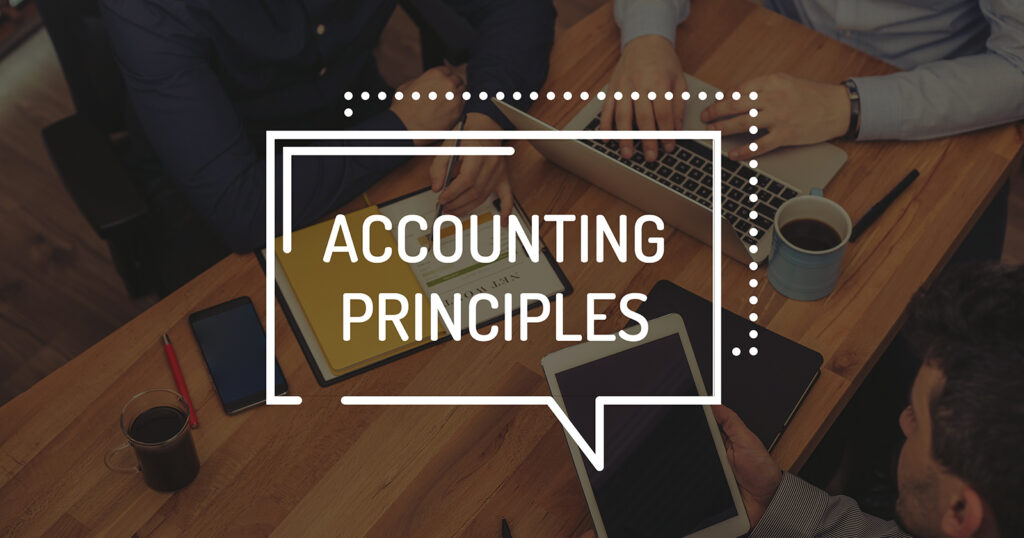Accounting accounts are not the same as a transaction, trial balance or general ledger. You might here these terms in the same sentence but each has a different meaning. Today, we’ll explain accounting accounts, look at their definition, the types of accounts and some common ones you are likely to see.

What is an Accounting Account? (The Definition and Meaning)
First, it is helpful to define an accounting account. An accounting account is where all similar transactions are stored together and grouped.
Let’s take a look at what that looks like.
A Few Examples of Accounting Accounts
You may have 50 individual inventory transactions that all go into an inventory account. Alternatively, the one that comes to most people’s minds is the cash account. It stores the individual transactions in the cash account. It doesn’t matter if that is cash going in or cash going out. All of those transactions would be in a cash account.
Some key points to remember that will help you understand accounts are as follows:
- Transactions can be seen at a detailed level on the general ledger.
- Transactions roll up into accounts.
- A chart of accounts shows all of the accounts for a business.
- A trial balance will show the accounts that make up the financial statements.
- Accounts roll up and are used to create the financial statements of a business.
Learn More:
Double Entry Accounting is A Must Know| Here is the Meaning
What are the Accounting Account Types?
Accounting accounts fall into a few main types: assets, liabilities and equities. Revenue and expenses as well. We have explored all of these in the past so be sure to go back if you are not too familiar with their nuances.
How is an Account Different from a Transaction?
As we mentioned, it is the transactions that go into accounts. Think of accounts like a bucket. They catch all the individual transactions related to the account. This means that if you increase cash and then decrease cash, the account will show the net amount of all of these transactions.
A List of Common Accounting Accounts (Ones You Should Know)
Below we will list out some common accounting accounts. Accounts can be very specific depending on the type of business.
| Account | Type |
| Cash | Assets |
| Accounts receivable | Assets |
| Inventory | Assets |
| Investments | Assets |
| Real Estate | Assets |
| Accounts Payable | Liabilities |
| Leases Payable | Liabilities |
| Payroll Payable | Liabilities |
| Owners Equity | Equity |
| Sales Revenue | Revenue |
| Consulting Revenue | Revenue |
| Wages | Expenses |
| Rent | Expenses |
| Cost of Goods Sold | Expenses |
| Utilities | Expenses |
Does this remind you of looking at a chart of accounts?
Which Accounting Accounts are Temporary?
Now that we have established what an account is, the type of accounts and some common accounts, there is two more things to keep in mind. Temporary accounts are accounts that are closed, zeroed out and reset at the end of an accounting period. Typically you will see this with a year-end close.
Temporary accounts include revenue and expense accounts. These are your income statement accounts. They are closed out and set back to zero so a business can see how much it earns in a year. This is an important difference from permanent accounts.
Explore More:
What is The Cash Basis of Accounting? For Beginners

Which Accounting Accounts are Permanent?
Permanent accounts are your balance sheet accounts. Assets, liabilities and equity do not perform closing procedures like revenue and expense accounts.
This is the key reason that balance sheet accounts are shown at a point in time instead of for a period of time. That is why typical balance sheets will “as of” a date and an income statement will be for “for the year ended”.
Accounting Accounts Definition: Final Thoughts on Accounts
Accounts are pretty basic accounting terminology but you are going to need to understand the concept of them like the other base concepts in accounting before progressing. Next, you’ll be ready to move on to debits and credits if you haven’t already mastered them or capturing transactions using T Accounts.



